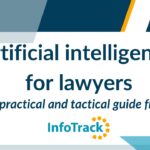
Reflections On My Tax Court Trial That Gained A Lot Of Unexpected Attention
//
 A little over a year ago, I was the attorney at the trial of Romana v. Commissioner where I represented a married couple before the United States Tax Court. The tax court is an administrative court that only reviews tax cases and only in certain cases, most commonly at the conclusion of an audit.
A little over a year ago, I was the attorney at the trial of Romana v. Commissioner where I represented a married couple before the United States Tax Court. The tax court is an administrative court that only reviews tax cases and only in certain cases, most commonly at the conclusion of an audit.
To my surprise, the court’s decision was examined by a number of commentators — for example, this detailed commentary by Professor Bryan Camp over at the TaxProf Blog — most of whom talked about the deductibility of my client’s (a nurse) purchase of medical scrubs. This led to practitioners reaching out to me to talk about what happened in this case. They also wanted to know why this case went to trial when the amounts were relatively small. So today, I want to share my perspective on this case and give a small primer on litigating before the U.S. Tax Court.
googletag.cmd.push( function() { // Display ad. googletag.display( "div-id-for-top-300x250" ); });When the taxpayers first came to me, they were under an IRS audit of multiple years of their tax returns. The auditor challenged a number of deductions, including the clothing expenses mentioned in the opinion.
 Sponsored Take Your Firm’s Work To The Next Level With Neos With endless customization options and a robust suite of integrations, Assembly Software’s Neos is a powerful, cloud-based platform ideal for today’s forward-thinking attorneys. From Assembly Software and Above The Law
Sponsored Take Your Firm’s Work To The Next Level With Neos With endless customization options and a robust suite of integrations, Assembly Software’s Neos is a powerful, cloud-based platform ideal for today’s forward-thinking attorneys. From Assembly Software and Above The Law The years being audited were before the enactment of the Tax Cuts and Jobs Act of 2017. At that time, an employee who purchased business-related items out of pocket without reimbursement from their employer was entitled to take an itemized deduction for the purchase. From 2018 until 2025, these itemized deductions are not deductible.
For clothing to be tax deductible, it has to be purchased as a condition of employment. Also, the clothing cannot be appropriate for everyday wear. Basically, they had to be uniforms.
googletag.cmd.push( function() { // Display ad. googletag.display( "div-id-for-middle-300x250" ); }); googletag.cmd.push( function() { // Display ad. googletag.display( "div-id-for-storycontent-440x100" ); }); googletag.cmd.push( function() { // Display ad. googletag.display( "div-id-for-in-story-youtube-1x1" ); });The opinion stated that Mrs. Romana purchased clothing that “resembled” scrubs (or medical uniforms.) This is incorrect as they really were scrubs. The auditor was skeptical that they were used because they were purchased at the department store and they came in different colors and styles. Those who have worked in or visited a hospital or a medical clinic will know that nurses today no longer wear the traditional white dress and the nurse cap. Nursing uniforms come in a variety of colors and styles. They can also be purchased online or at a large clothing store.
She also purchased white lab coats with her name and position embroidered in them. The problem was that she purchased them through a third party, paid with cash, and had limited number of receipts. Since several years have passed, some of the receipts have become illegible.
Sponsored Sponsored Artificial Intelligence For Law Firms: A Practical And Tactical Guide The legal profession stands on the brink of an AI-driven evolution. This comprehensive primer will bring any lawyer up to speed. From InfoTrack and Above The Law
Sponsored Artificial Intelligence For Law Firms: A Practical And Tactical Guide The legal profession stands on the brink of an AI-driven evolution. This comprehensive primer will bring any lawyer up to speed. From InfoTrack and Above The Law  Sponsored Advancing AI Safety: Law Student Competition For Drafting A Treaty On Moratorium Of Large-Scale AI Capabilities R&D To enforce a regime that will allow humanity to continue to exist, countries need to pass appropriate laws and enter international treaties. From Campaign for AI Safety
Sponsored Advancing AI Safety: Law Student Competition For Drafting A Treaty On Moratorium Of Large-Scale AI Capabilities R&D To enforce a regime that will allow humanity to continue to exist, countries need to pass appropriate laws and enter international treaties. From Campaign for AI Safety  Sponsored Take Your Firm’s Work To The Next Level With Neos With endless customization options and a robust suite of integrations, Assembly Software’s Neos is a powerful, cloud-based platform ideal for today’s forward-thinking attorneys. From Assembly Software and Above The Law
Sponsored Take Your Firm’s Work To The Next Level With Neos With endless customization options and a robust suite of integrations, Assembly Software’s Neos is a powerful, cloud-based platform ideal for today’s forward-thinking attorneys. From Assembly Software and Above The Law  Sponsored The Digital Transformation Imperative Private funds’ in-house and external legal teams are stretched thin by growing legal demands. Firms need digital transformation to thrive. From Troy Pospisil, Ontra CEO
Sponsored The Digital Transformation Imperative Private funds’ in-house and external legal teams are stretched thin by growing legal demands. Firms need digital transformation to thrive. From Troy Pospisil, Ontra CEO My clients also had documentation for other employment-related expenses, but the IRS auditor did not believe them and denied the deductions. She asked very specific questions that my client had difficulty answering due to the passage of time.
I asked the auditor not to issue any penalties against my clients because they relied on their tax preparer’s expertise in filing the returns. Their tax returns were moderately complex as they also involved their rental real estate properties. Also, they had no knowledge of the tax law and some of the laws involved were too niche and complex for them to understand on their own.
At the end of the audit, the IRS auditor for the most part came to conclusions that we did not think were worth challenging further, even those we thought were wrong. But the auditor has assessed the accuracy-related penalty which was 20% of the proposed tax increase. This penalty can be waived if my clients can show that they reasonably relied on their tax preparer.
googletag.cmd.push( function() { // Display ad. googletag.display( "div-id-for-bottom-300x250" ); });We received a notice of determination which displayed the auditor’s final computation. Once a taxpayer gets this notice, they have 90 days to file a petition to the United States Tax Court. Otherwise, after the deadline, the taxpayers will get a bill from the IRS and collection actions will begin if they do not pay.
The tax amounts with interest and penalties were under $50,000. This gave us an option to file a petition as a “small tax case.” A small tax case generally is handled with simpler and less formal procedures than a regular case. There were a number of reasons why we chose to litigate this as a small tax case. But the most important reason was its informal nature. This would be important if my clients wished to go to trial but was unable to have an attorney or other authorized individual represent them.
Sponsored Sponsored The Digital Transformation Imperative Private funds’ in-house and external legal teams are stretched thin by growing legal demands. Firms need digital transformation to thrive. From Troy Pospisil, Ontra CEO
Sponsored The Digital Transformation Imperative Private funds’ in-house and external legal teams are stretched thin by growing legal demands. Firms need digital transformation to thrive. From Troy Pospisil, Ontra CEO  Sponsored How Overture Law Is Revolutionizing Referral Fees LegalZoom's founder has launched a new platform where solos and small firms can refer clients to one another and ethically share in fees. From Above the Law
Sponsored How Overture Law Is Revolutionizing Referral Fees LegalZoom's founder has launched a new platform where solos and small firms can refer clients to one another and ethically share in fees. From Above the Law Another reason for choosing small case status was that the judge’s decision is not appealable nor can it be used as precedent for any future cases. Now one might think that this is a disadvantage. But because of these procedural limitations, the judge is free to give additional liberties on gray area issues. Also, my clients did not want to appeal the decision anyway.
After filing the petition, our case was assigned to an appeals officer for possible settlement. Generally, appeals officers have the authority to concede weak or uncertain issues if it will result in a settlement. Most tax court cases settle before they go to trial. My clients and I believed our case would settle as well.
For the purpose of settlement and saving money on litigation costs, my clients and I considered conceding all of the smaller, more questionable issues (including the clothing expenses.) But we would only do this in exchange for the IRS waiving the accuracy-related penalty.
We met with the appeals officer but even after discussing the hazards of litigation, she would not make any adjustments nor waive the penalties.
Our case received a trial date and it was assigned to an IRS attorney. The IRS attorney, his supervisor, and I met in the hopes of one last shot at settlement. They rejected our settlement proposal and did not budge on their positions.
My clients and I discussed whether to go to trial. It seemed as though we had little to lose by going to trial. They asked why the IRS attorneys would want to try this case. I told them that there could be many reasons. Perhaps the IRS felt very strongly about their positions and their chances of winning. A new attorney might want trial experience. Or they were thinking that we would settle before trial. Or they had another reason for taking a hard line against my clients for reasons that had nothing to do with them.
We decided to go for it.
The trial was solely for obtaining testimony from my clients. They testified about their educational background, their lack of knowledge of U.S. tax law, and how they used and relied on the same tax preparer for many years. They each explained why they purchased all of the items in question for work purposes. Mrs. Romana specifically testified as to where she purchased her scrubs and where they were worn. After the trial was over, the judge invited myself and the three IRS attorneys into his chambers where he shared his thoughts on the case.
It should be noted that during the tax court’s calendar call and trial, there were pro bono attorneys available to help indigent taxpayers. Those litigating their cases on their own should consider using their services.
In the opinion, the court awarded a partial deduction for the purchase of Mrs. Romana’s scrubs, but denied the other itemized deductions. But the court removed the accuracy-related penalties. The opinion only discussed the relatively small employment-related expenses which led some to question why this went to trial. It did not list the substantially larger accuracy-related penalties.
We didn’t get everything we wanted but at least we won on the big issues. It is best to settle, but my clients and I were ready to go to trial if necessary.
Steven Chung is a tax attorney in Los Angeles, California. He helps people with basic tax planning and resolve tax disputes. He is also sympathetic to people with large student loans. He can be reached via email at [email protected]. Or you can connect with him on Twitter (@stevenchung) and connect with him on LinkedIn.
TopicsGovernment, Romana v. Commissioner, Steven Chung, Tax Law
Introducing Jobbguru: Your Gateway to Career Success
The ultimate job platform is designed to connect job seekers with their dream career opportunities. Whether you're a recent graduate, a seasoned professional, or someone seeking a career change, Jobbguru provides you with the tools and resources to navigate the job market with ease.
Take the next step in your career with Jobbguru:
Don't let the perfect job opportunity pass you by. Join Jobbguru today and unlock a world of career possibilities. Start your journey towards professional success and discover your dream job with Jobbguru.
Originally posted on: https://abovethelaw.com/2023/07/reflections-on-my-tax-court-trial-that-gained-a-lot-of-unexpected-attention/